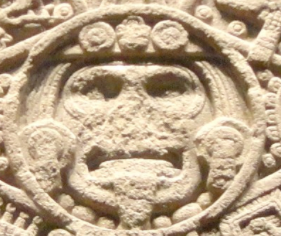Esperanto. Logical. Clear. Easy.
Mi amas Esperanton!
Globasa. A constructed language, but with most world language families represented, and a process that ensures new words meet a few other good criteria.
Barring that, toki pona.
Esperanto, Ido, Indonesian, or Afrikaans.
French, we could all be a little more french when keeping our leaders on a leash
Esperanto! Yes, there are better conlangs, yes, it’s eurocentric, and yes, there are ways to improve it or even come up with something better. But it has a cool history, it’s tied to socialist movements and anarchist movements, it is fairly easy to learn (especially for speakers of European languages), it’s grammar is super simple, it uses a system of root words and affixes that make me think of Legos, and it has real, native speakers already, meaning it is a living language that has changed over time, and is fully capable of being used exclusively to communicate efficiently.
Plus, the fascists fucking hate it
Plus, the fascists fucking hate it
Lol was waiting for this kick-back
Not against Esperanto but creating a “universal language”and then making it gendered seems a little stupid.
It’s not as bad as other languages on this front, but if I remember correctly there’s still no agreed-upon gender neutral singular pronoun in Esperanto is there?
Mi forgesis, ke mi lernis ĉi tiun lingvon.
There’s a daughter language called Ido that’s done away with gender, iirc. And I believe there’s some gender neutral ways to get around it in the community, but it’s been a long time since I’ve attempted to do anything with it
Might as well choose English at that point.
Actually wondering, why would fascists hate it? Idk much history behind language, just know that language exists.
The whole idea behind it was radical unity, internationalism, and bringing disparate people together on equal footing. Instead of me speaking a language I’ve known since birth, and you speaking a language you are just capable of understanding, and both of us trying to plead our case to the government, the idea is that we would all have an auxiliary language to compliment (not replace) our mother tongues, and we would both be capable of making yourself understood equally.
Those ideals don’t really jive with hard nationalism and pseudoscientific ideas around superior races
Yeah make sense, thanks
Congrats, you managed to turn this conversation into a socialism vs fascism conversation. It wasn’t easy but you spotted an opportunity and you took it. Now we can all talk about your favourite topic!
Politics?? In MY language conversation? Well, I never…
C’mon now.
Congratulations, you managed to get offended by a historical tidbit about a constructed language!
Oh, and pissing off fascists is always good. Period. Full stop. If you don’t think that’s true, perhaps it’s time for some introspection!
Python
So something as ambiguous, complex and misused as English. Nice.
I was thinking of saying Rust but I thought Python would be a little easier 😆
Woa
Something with a consistent phonetic alphabet, like Korean with hangol.
Esperanto. it’s not the statisically-average best lingua franca but it’s the best known that’s not tied to a single nation. Plus Hitler and Stalin both hated it.
Plus Hitler and Stalin both hated it.
The Fascist crew 😂
I feel like Indonesian is a decent start. There are already a lot of people speaking it, and it’s REALLY easy to learn.
There’s no conjugation and no cases/agreement. I’m a native English speaker and picked up a functional amount of Indonesian in a matter of months, just from reading a couple books before we went.
Gaeilge just to fuck with the brits. We all have to write it in ogham too, I don’t care how inconvenient it might be.
That or serbo-croatian because we are all serbs anyway
Tabhairfaidh mé mo vóta duit.
Such a pretty language. I should learn it someday!
Mé fresin.
I would have picked gaeilge too, since it’s the only other language I know (kinda, I’m terrible at it). Ogham sucks though.
Yeah Ogham would be fucking awful for modern communication but I thought it’d be really funny. In a more serious sense I actually think it’d be super interesting to see how humans adapted to it and adapted it to their needs.
Anyway I also picked Gaeilge because it makes for great lyricism
Mongolian, just for preparation for when the Mongols rise again. It’s just a matter of time.
Esperanto. It’s an artificial language designed to be easy to learn and communicate in. Although it’s worth noting that there are esperanto dialects and speakers of one don’t necessarily understand speakers of another.
Although it’s worth noting that there are esperanto dialects and speakers of one don’t necessarily understand speakers of another.
WHAT!? OK biggest failure of an artificial language in my book then
I think this is actually a success: this is the process of all languages. A usable language will evolve and grow, and something as geographical dispersed and isolated as Esperanto will certainly show divergence if it is being used.
So rather than a failure, I think this demonstrates it can be a real language. Though my interest in language isn’t for communication. So eh. Your milage may very.
I think it is easy, but I speak only european languages. Not sure if it is really easier or I just feel that is easy because I know the languages I do.
I would love to say mandarin/chinese, but tonal languages scares me.
I made a grammar rule set (not a complete conlang yet) where verbs don’t need to be conjugated, and information about time is separated from the verb; A new lingua franca, IMHO, should not have verb conjugation.
Why not lojban?
Haven’t heard of it.
I’ve been enjoying studying Mandarin. The tones are a bit weird but the grammar seems surprisingly simple, everything can be written pretty universally in pinyin, and Hanzi characters are great for condensing information.
Hanzi characters are great for condensing information.
True, I will ask this: Why does it have 2 variants? Traditional? Modern?
Because languages change over time and every once in a while someone comes along who insists they can “fix” the language by making a bunch of changes. They are probably right and the changes, if widely adopted, will probably make the language more sensible. However, since one of the common features of a living language is that it changes over time due to usage, oddities will start creeping back in. And the whole thing will need to start all over again.
Fucked if I know 😂 I’m studying it on my own from textbooks and online resources, not in a classroom setting taught by scholars much much smarter than me. I assume the reduced complexity of simplified characters makes it more accessible though, which is why I understand the PRC makes Pinyin required on road signs as well.
The ultimate goal was to transition Mandarin to Roman letters (which had happened naturally in Vietnam, so there was precedent).ao’s party realised that going straight from Chinese characters to Roman letters would be too abrupt, so took a first step of swapping out complex characters for characters that look simpler but are easier to write. This was surprisingly well-received, and became standard in mainland China (but Taiwan did not adopt the new system on the entirely reasonable grounds of fuck the CCP). The CCP intended to do a second round of simplification, but the people balked at this on the grounds that it made the written language to difficult to read, and so they stopped at the current set.
Toki pona
Thus making everything open to interpretation

I’d honestly love to see something like that become an actual universal language. Simple grammar, sub 500 words, a little more meat on the bones to eliminate some of the ambiguity, but be easy enough to teach every kid in early grade school. Something that just allows basic communication and is accessible to everyone.
Don’t think it’s going to be an evolved toki pona though, it feels like most of its fan base just wants to keep it an impractical art hobby instead of allowing it to grow up to be something useful.
I stopped believing in toki pona when I heard somebody say that “watermelon” would be “kili telo” (fruit [of] water). It goes without saying that “kili telo” would not be understood as “watermelon” unless they had heard it in English before, or heard someone use the English-derived “kili telo”.
If you’re going to use English-language ideas to form words, then English is a prerequisite language for speaking toki pona, and toki pona becomes useless.I think if toki pona is developed as you describe, it could be much more useful than it is today.
Isn’t toki pona supposed to be an art language?
Is Esperanto similar to what you’re talking about?
Is Esperanto similar to what you’re talking about?
No, I think a true universal language is going to need minimal friction, and be as simple and vocab-limited as possible, to encourage mass adaptation.
For all its intent on being easier than other mainstream languages, Esparanto is still more complex than what I’m talking about.
Screeching 9600 baud modems. Now with more emotion!






















